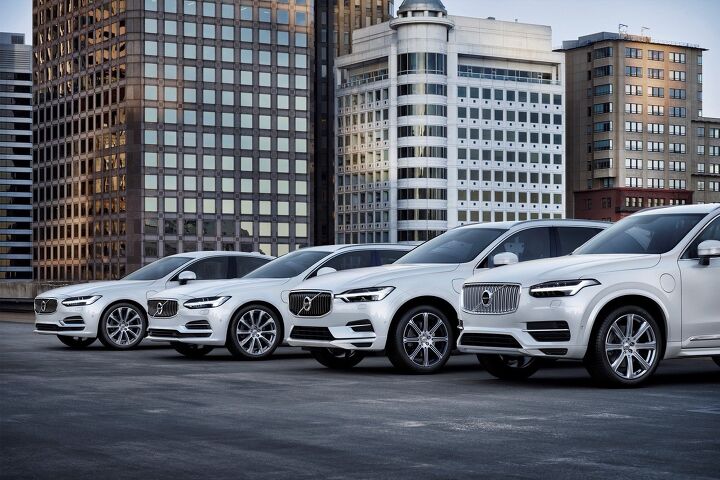#Expectations
Volvo's U.S. Sales Are Falling; Company Still Plans to Grow U.S. Sales 80 Percent by 2020
Volvo has lofty expectations for its presence in the U.S. luxury car market, but the Chinese-owned Swedish automaker is going to rely on a new boss to dramatically elevate the brand’s U.S. volume over the next three years.
Lex Kerssemakers, a Dutchman who’s been in charge of Volvo’s North American region for nearly three years, is being shuffled into the equivalent position as Volvo Cars’ senior vice president for Europe, Middle East, and Africa. It’s essentially a straight-up trade: Anders Gustaffson moves over from his role as senior vice president for Europe/Middle East/Africa to inherit Kerssemakers old job, according to Automotive News.
The new boss overseeing Volvo’s U.S. operations brings a retail-oriented perspective, having held his first job as a 14-year-old at his parents’ Volvo dealer in Sweden. Anders Gustaffson also held a role as CEO of Hertz in Sweden and was the leader of Volvo in its home market, as well.
Gustaffson’s predecessor —also his successor — hasn’t shied away from placing a large amount of pressure on Gustaffson’s shoulders. Through the first seven months of 2017, Volvo’s U.S. sales are down 9 percent, diving three times faster than the industry at large. Yet according to Kerssemakers, “Volvo should sell 150,000 vehicles a year in the U.S. [by 2020],” Automotive News reports.
That’s an 80-percent jump in the next three years. Get to work, Mr. Gustafsson.
GM's Strong Showing In China Indicates March Surprise
It’s that time of the month again: In the first days of the month, market observers in China eagerly await the GM China sales number. GM usually is first to report. What’s more, GM is the canary in the ( ooops) Chinese coal mine, a very good indicator for the overall market. Looking back at March, that canary happily tweets that GM’s March sales in China, including Wuling vans, accelerated 68 percent to 230,048 units. Shanghai GM’s sales of Buicks, Chevys, and a few Cadillacs rose 89 percent annually to 86,967 units. That according to Associated Press. This is another record Middle Kingdom month for GM, the 15th in a row, and it indicates a March surprise for the Chinese market.

















Recent Comments